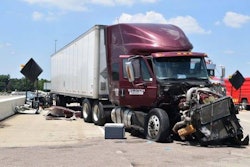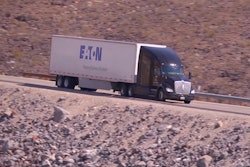In an effort to revise a nearly 20-year-old study on the causes of large truck crashes, the Federal Motor Carrier Safety Administration is requesting information about how to most effectively collect crash data for the study.
The agency says it conducted a comprehensive large truck crash causation study (LTCCS) in 2001-2003 that gave insight into the factors that contribute to crashes involving at least one commercial vehicle. The results of that study found that driver-related action or inaction was the critical reason for crashes assigned to large trucks.
With changes in technology, vehicle safety, driver behavior and roadway design since the original study was conducted, FMCSA is looking to revise its methods for gathering data on crash causation. The agency says the new study will help it identify factors that are contributing to the recent growth in fatal large truck crashes, and in both injury and property damage only crashes.
FMCSA adds that the results from the study will help inform technology developers with autonomous vehicles of the kinds of driver behaviors that need to be addressed. The study will develop a baseline of large truck crash factors, FMCSA says, to help guide mitigating crash avoidance strategies to prevent future crashes.
In order to conduct the study, FMCSA is looking for answers to the following questions:
- Should FMCSA pursue a nationally representative sampling approach, or can convenience sampling serve the needs?
- What type of study are you recommending (e.g. nationally representative vs. convenience sampling), and what are the pros and cons of this approach?
- How important is it for the new study results to be comparable with findings of the original LTCCS?
- What other sources of data can enrich the new study? How can they be identified and included?











